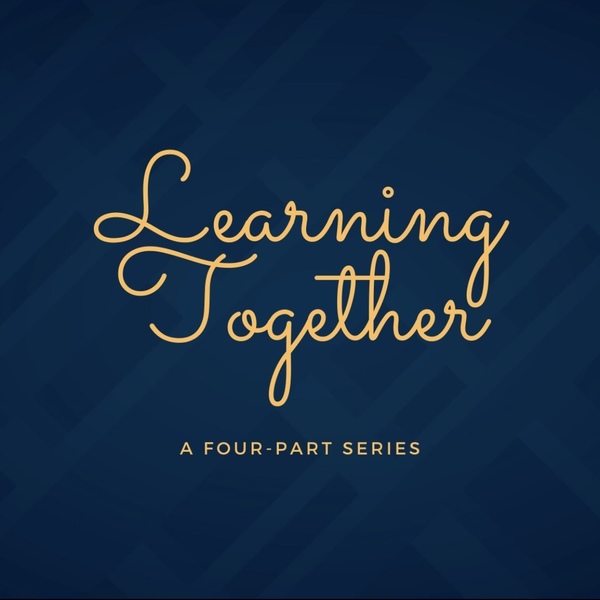
As we continue to expand on our two previous Learning Together installments, this third installment speaks on some of the effects that racism has had in our communities and lives from all facets. Once again, these sources are predominantly free, and all of them are accessible and easy to understand. The primary goal of our Learning Together campaign is to educate and amplify Black voices, through selected materials that don’t have a barrier to entry.
Here, we will explore the effects racism has had on our society, whether they be social, economic, or political. This is usually the point in discussing racial justice where resistance is met and fervent. It is, generally, easy to understand the concept (What is Racism) or even the history of it (Where Did Racism Begin), but addressing issues in the recent past or even in our contemporary present become rigid and we often have a desire to deny it in defense of us living in the best time, yet. It is because of this, I again, ask you to challenge yourself to not deny, but rather critique our present in hopes of an even better future.
- The Help by Tate Taylor (Netflix movie c. 2011)
The Help is a great movie that stars the incredible Viola Davis and depicts the harsh and explicit reality of pre-Civil Rights America, racial injustice, socioeconomic inequality, and through the eyes of a Black woman. This movie was nominated for 120 awards and brought home 80 of them, most of which highlighted the film's script and cast. I bring this up as our first source for understanding the effects of racism, not only because this movie is relevant to the past, but it also brings out the role of education and financial inequality in America that we can see in today's society.
- Life After Slavery for African Americans by Khan Academy (7 min read)
Khan Academy is most notable for its quick math help right before exams or perhaps its units on Biology or Chemistry. However, they also have many factually accurate sources concerning the post-slavery laws and politics that affected African Americans. This particular article speaks about the Reconstruction era (1865-1877), which brought a lot of change and adjustment to this new version of the United States. Most importantly during this time, the United States saw an inverse relationship between slave owners and vocal white supremacists. This led to an eradication of traditional slave owners and the establishment of the Ku Klux Klan (KKK), which helped enforce a racial hierarchy all across the nation.
- Black Codes by Khan Academy (2 min read)
The Black Codes, which were a set of "discriminatory state laws" that helped keep a society with subservient Blacks intact in the United States, also came about during Reconstruction. While perfectly legal, it worked in the wide loopholes of the Civil Rights Act of 1866 and operated predominantly in the South and Midwest. Black Codes also opened the way for the infamous Jim Crow laws and legalized white supremacy, which was supported by many Americans at the time. The laws were an active, deliberate, and calculated way to bring forth what the KKK called the"invisible empire of the South," a reference to a toppled Confederacy.
- Strange Fruit by Billie Holiday (3 min song)
A short but packed song that gives anyone who listens to it the same chills of terror. "Strange Fruit" walks you through the reality of being Black in the 20th century, not as an enslaved person, but as a second-class citizen. With the post-Reconstruction revival of the KKK in the early 20th century, along with discriminatory laws, the United States saw a plague of hanging, murder, stalking, torture, dismemberment, castration, and false imprisonment of Blacks. This song is but one experience and a foreshadow of the larger Civil Rights Movement that would occur in a few decades.
- Selma by Ava DuVaernay (Amazon Prime)
This critically-acclaimed movie depicts the Civil Rights Movement through the eyes of Martin Luther King, Jr. and the incredibly large march, which he led from Selma to Montgomery in 1964. This march sparked outrage from many white supremacists, who feared to question their racist and previously ingrained beliefs, and who were not ready to embark on the journey toward greater knowledge and respect for what Black Americans had endured for hundreds of years. This movie is a great representation of what it took to fight for citizenship in America as a Black person.
- A Change Is Gonna Come by Sam Cooke (3 min song)
This song comes just before the enactment of the Civil Rights Act of 1964 and is, what I believe, to be the general attitude of many Black people who were anticipating their long-awaited equality in America.
- The Central Park Five by Ken Burns, Sarah Burns, David McMahon (Amazon Prime)
The Central Park Five is a real incident, where five Black men were falsely accused, indicted, and charged with the rape of a white woman in Central Park in 1989. This case caught many Americans’ eyes and was made even more public when the five men were freed from prison in 2002 upon the real perpetrator’s confession. The Central Park Five were victims of racism in our society that allowed false confessions and decade-long sentences as the only alternative to life sentences and inadequate public legal representation. This movie shows the horrors of America's justice system in the post-Civil Rights era and the socioeconomic and political inequality that remains today.